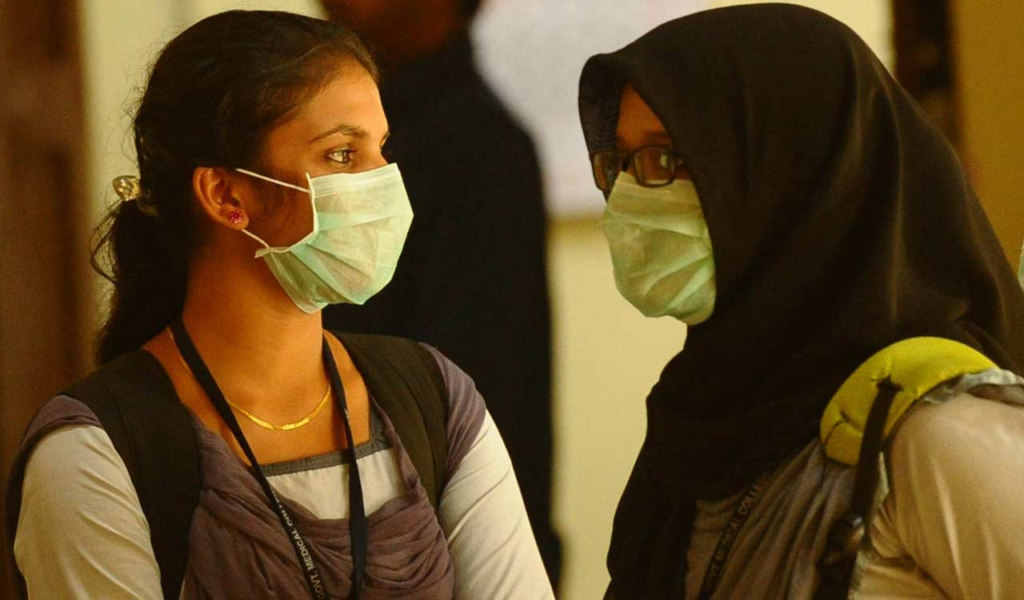Introduction: Nipah Virus Kerala
On September 16, 2024, the Malappuram district of Kerala faced a severe public health crisis as the Nipah virus claimed the life of a 23-year-old student. In response, local authorities have implemented strict measures, including mandatory mask-wearing and the closure of public institutions. This article provides a comprehensive overview of the situation, the actions taken by officials, and expert insights into managing the outbreak.

The Incident: Detailed Chronology of the Nipah Virus Case
The tragedy began when a 23-year-old student, originally from Chembaram, Wandoor, Malappuram, returned from Bengaluru with a leg injury. Over time, he developed severe symptoms including high fever. Initially seeking treatment at local clinics, his condition worsened, leading to his admission at Perinthalmanna Hospital on September 6, 2024. Tests conducted at Kozhikode Medical College confirmed the presence of the Nipah virus, and this was further validated by the Pune virology lab on September 12, 2024. The public announcement was made by Kerala’s Health Minister Veena George on September 14, 2024.
Health Protocols and Measures: Immediate Actions to Contain the Spread
Following the confirmation of the Nipah virus, the district administration imposed a mask mandate effective September 16, 2024. The affected area includes the Thiruvali panchayat and one ward from Mampad panchayat. Schools, theaters, and other public institutions in these areas have been closed until further notice. Public gatherings are restricted, and events must adhere to stringent health protocols to minimize the risk of virus transmission.
Tracing and Contact Monitoring: Ensuring Comprehensive Safety
Health officials are actively mapping the deceased’s contacts and route to ensure effective monitoring and containment. This involves tracking everyone who might have had exposure to the infected individual and ensuring they adhere to health protocols. Local health centers are on high alert to manage any potential new cases and provide necessary support.
Historical Context: Nipah Virus in Kerala
Kerala has a history with the Nipah virus, with a significant outbreak occurring in 2018 that resulted in 18 deaths. This year, another outbreak claimed the life of a 14-year-old boy on July 21, 2024. These incidents underscore the necessity for rigorous health measures and prompt response to prevent widespread outbreaks.
Latest Developments: Ongoing Efforts and Updates
As of September 16, 2024, Kerala’s health system is engaged in constant surveillance to prevent further infections. Public awareness campaigns are underway to educate residents about the Nipah virus and its prevention. The state’s proactive measures are aimed at containing the virus and ensuring the safety of its population.
Expert Opinions: Insights from Leading Health Authorities
Dr. Anil Kumar, a virologist at the Indian Council of Medical Research (ICMR), stated, “The rapid response by Malappuram authorities is essential in preventing a larger outbreak. Mask-wearing and public space closures are crucial steps in managing the virus.”
Dr. Priya Menon, an epidemiologist at the National Institute of Virology (NIV), added, “Given the Nipah virus’s high transmission rate, the measures taken by Kerala are appropriate and necessary. Continued vigilance is key to containing the virus.”
Timeline of Events: Key Dates and Actions
- September 6, 2024: Student admitted to Perinthalmanna hospital.
- September 9, 2024: Initial Nipah virus tests positive at Kozhikode Medical College.
- September 12, 2024: Confirmation of Nipah virus by Pune virology lab.
- September 14, 2024: Health Minister Veena George announces the outbreak.
- September 16, 2024: Implementation of mask mandate and public institution closures.
Conclusion: A Unified Response to a Health Crisis
The Nipah virus death in Malappuram has led to decisive action by local authorities, including mandatory mask-wearing and public space closures. These measures are crucial in controlling the outbreak and ensuring public safety. With continued vigilance and community cooperation, Kerala aims to prevent further spread of this dangerous virus.
For Regular News and Updates Follow – Sentinel eGazette
FAQs:
- What is the Nipah virus?
- The Nipah virus is a highly infectious virus that can cause severe illness in both animals and humans. It is transmitted through contact with infected animals or humans, and can lead to symptoms such as fever, headache, and in severe cases, encephalitis.
- How is the Nipah virus transmitted?
- The Nipah virus is primarily spread through contact with infected bats, pigs, or humans. It can also be transmitted through contaminated food or surfaces.
- What are the symptoms of Nipah virus infection?
- Symptoms include fever, headache, muscle pain, and nausea. In severe cases, it can lead to encephalitis (inflammation of the brain) and respiratory issues.
- How can I protect myself from Nipah virus?
- To protect yourself, practice good hygiene, avoid contact with infected animals or people, and follow public health guidelines such as wearing masks and avoiding large gatherings in affected areas.
- What measures are being taken in Kerala to combat the Nipah virus outbreak?
- In Kerala, authorities have mandated mask-wearing, closed public institutions, and restricted gatherings. Health officials are also tracking contacts and implementing public health protocols to contain the virus.